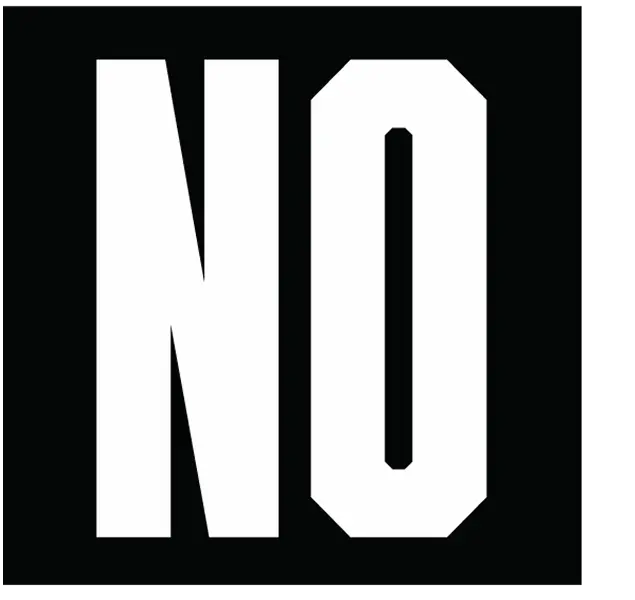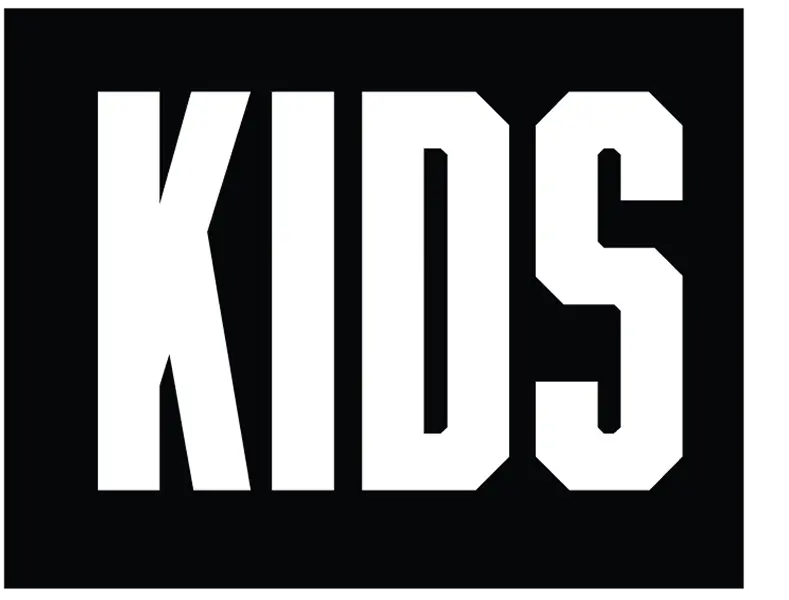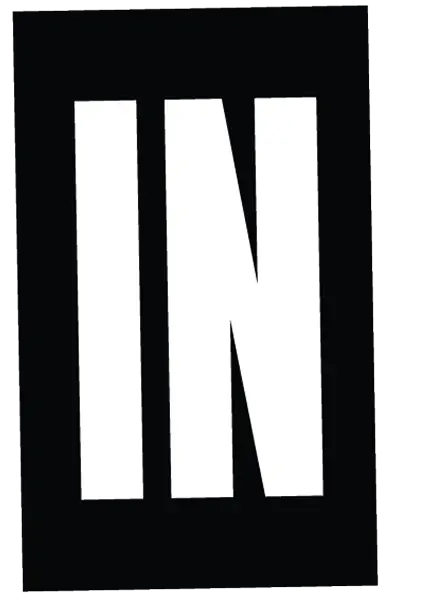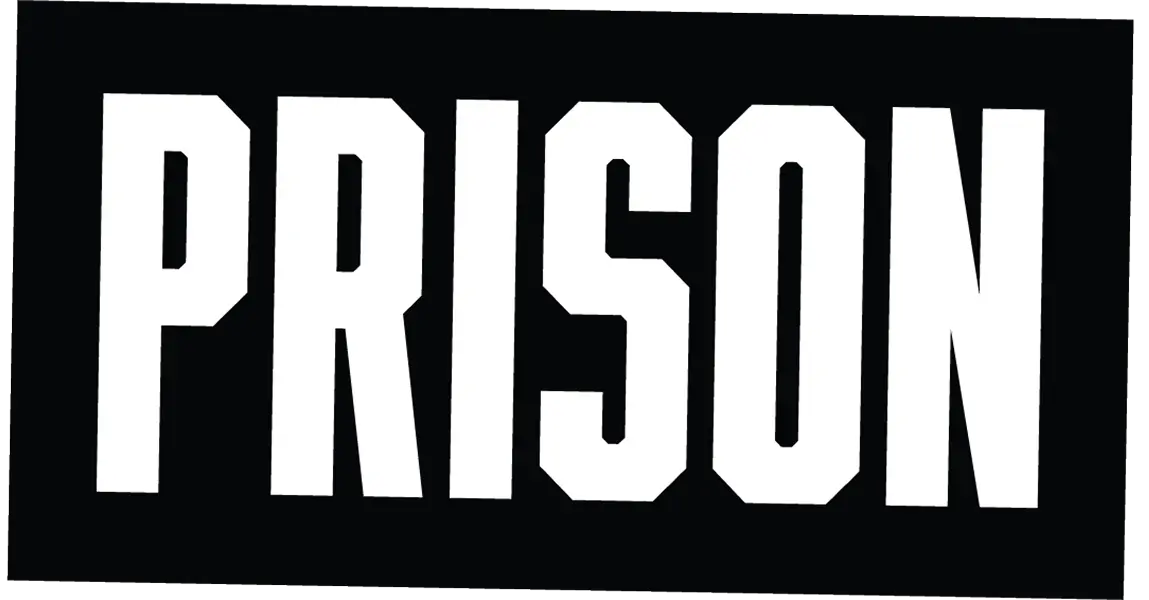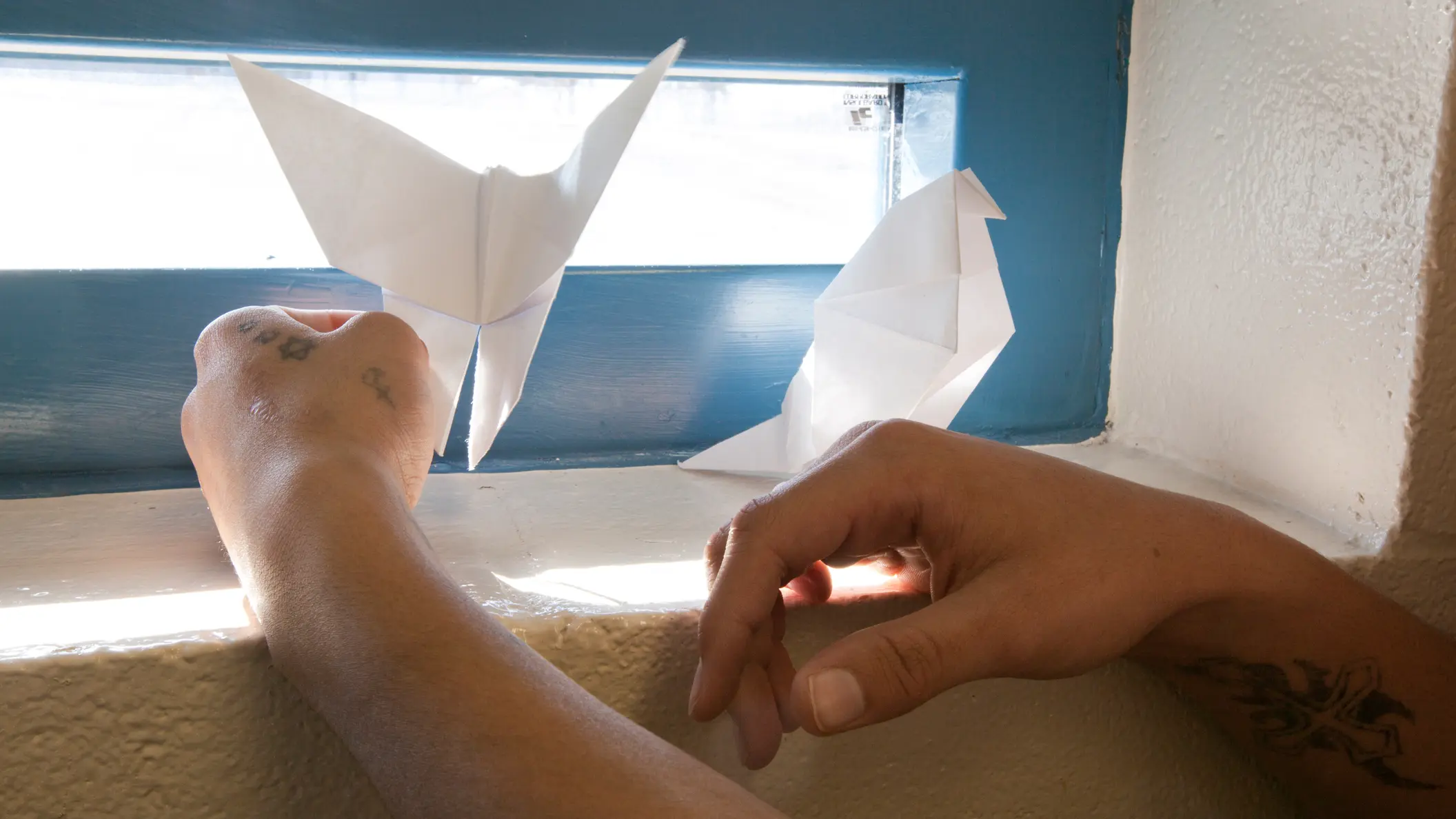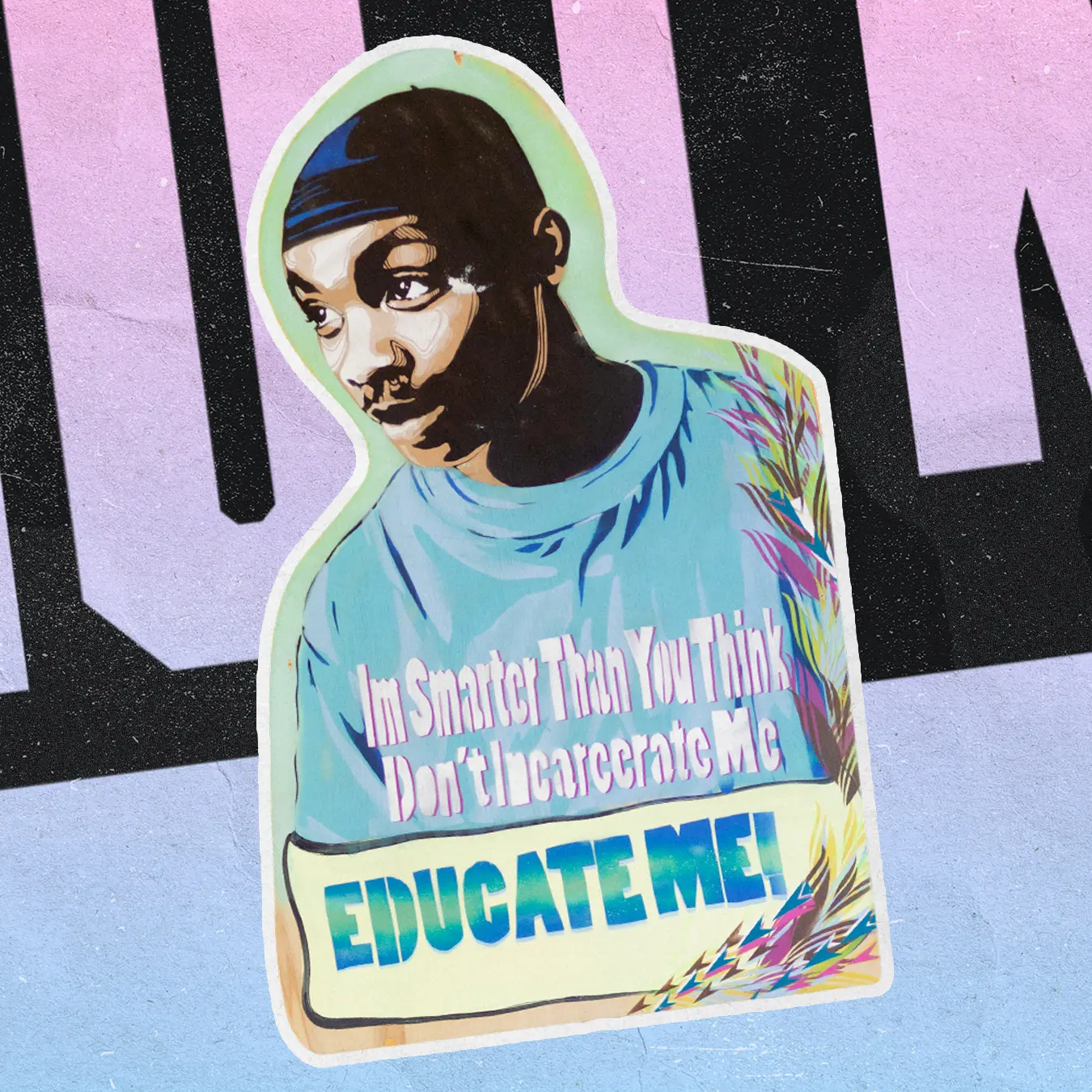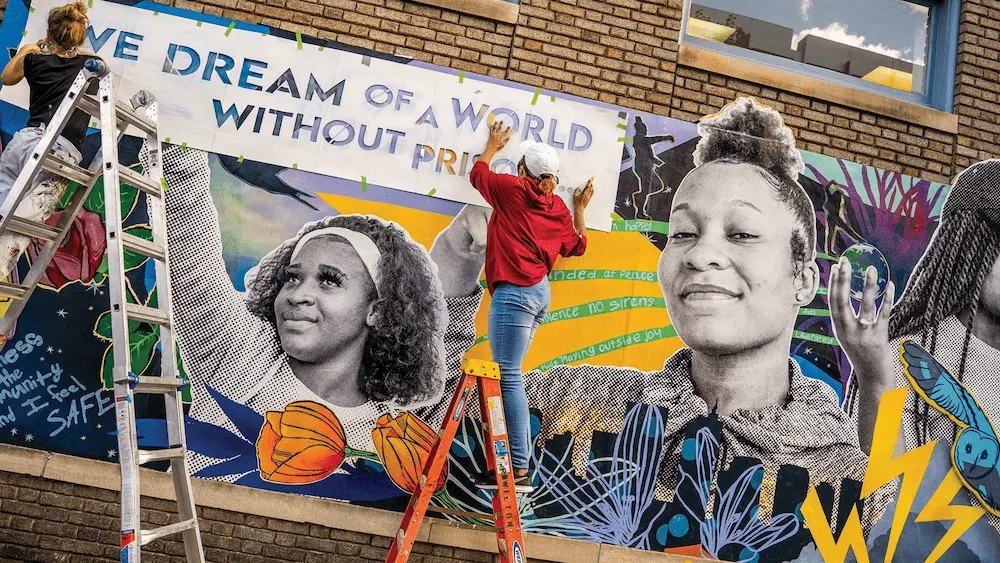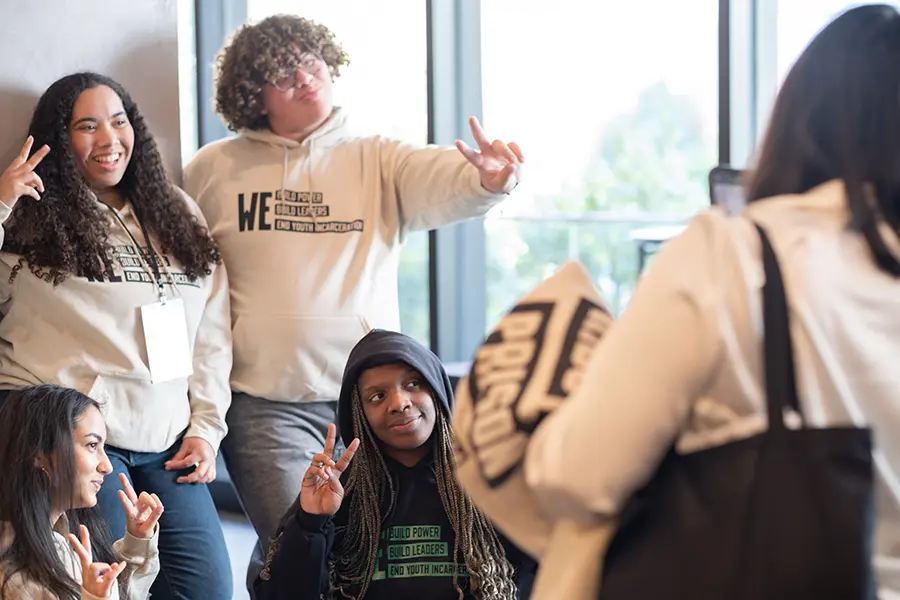Prison Industrial Complex (PIC) abolition is a political vision with the goal of eliminating imprisonment, policing, and surveillance and creating lasting alternatives to punishment and imprisonment.
Base building is a grassroots approach to building power with and by communities, not for them. It involves building a base, engaging communities and analyzing power. *Examples of base-building
The comprehensive network of systems that rely, at least in part, on the exercise of state-sanctioned physical, emotional, spatial, economic and political violence to preserve the interests of the state.
Non-institutional approaches within the juvenile justice system that prioritize rehabilitation and support for young offenders in their local communities rather than placing them in detention or correctional facilities. These alternatives aim to address the root causes of behavior by involving family, peers and community resources, which promotes positive development and reduces recidivism rates among youth.
Individuals who have had contact or interaction with the legal system through courts, jail, prison, secure placements, probation or parole, community supervision or diversionary programs.
Juvenile detention center (jail)
Juvenile detention is short-term confinement, primarily used after a youth has been arrested, but before a court has determined the youth’s innocence or guilt. Young people held in detention are presumed innocent unless and until they are adjudicated in court. The purpose of a detention center is temporary confinement while a young person’s case is handled in court.
Leadership pipeline or ladder of engagement
Helps us identify how members move through the organization, develop their leadership and increase their responsibility for the organization.
Organizing
Organizing is the process of building organizations of people with similar interests who use their collective power to win immediate improvements in people lives and alter the relations of power. (S.O.U.L.)
The ability to shape our lives and the world around us. Power is not good or bad. What makes it harmful or beneficial depends on how you use it and toward what end. Power allows us to influence the political, environmental, social and economic decisions that affect our lives.
The prison industrial complex (PIC) is a term we use to describe the overlapping interests of government and industry that use surveillance, policing and imprisonment as solutions to economic, social and political problems.
Restorative justice
Focuses on restoring or repairing relationships after someone has caused harm or a rupture in the relationship. It emphasizes the importance of individual people and their direct community connections receiving support and working toward healing after harm. This may be described as making a person whole after they have been harmed.
Second hand impact
The negative effects felt by the loved ones of someone directly impacted by incarceration.
People who are affected by or have experienced systems such as the juvenile justice system, child welfare system or immigration system. YFJC prioritizes youth impacted by the juvenile justice system.
Transformative Justice(TJ) is a political framework and approach for responding to violence, harm and abuse. At its most basic, it seeks to respond to violence without creating more violence and/or engaging in harm reduction to lessen the violence.
Youth correctional center (prison)
Longer-term placements for youth who have been adjudicated as delinquents and then ordered by a judge to be confined rather than supervised in the community.
Youth placement center
These are programs in which youth are placed by court order. Youth placement centers can include group homes, psychiatric residential treatment facilities and detention centers.
